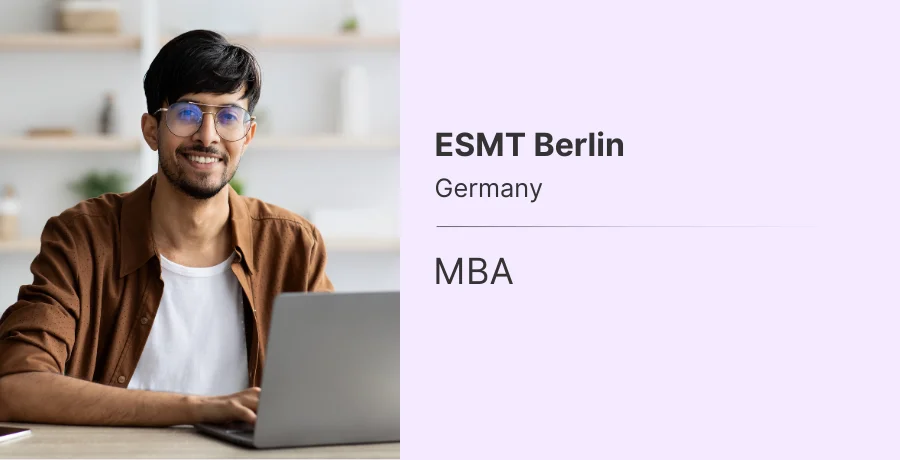Ruhr-Universität Bochum– Highlights
Established in 1962, Ruhr-Universität Bochum (RUB) is one of Germany's largest universities, renowned for its strong emphasis on research and interdisciplinary collaboration. Located in the heart of the Ruhr metropolitan region, RUB offers a diverse range of programs across various disciplines, maintaining a commitment to academic excellence and innovation. The university's modern infrastructure includes state-of-the-art laboratories, libraries, and lecture halls, ensuring an enriching academic experience for students and faculty alike. With a highly qualified teaching faculty comprising experts in their respective fields, RUB provides a stimulating learning environment that fosters both personal and professional growth.
- Year of Establishment: 1962
- QS Ranking: Ranked within the top 500 universities globally
- Other Rankings:
- Top 10 in Germany for Engineering
- Top 20 in Germany for Natural Sciences
- Top 100 in Europe for Medicine
- Top 50 in Europe for Humanities
- Top 300 globally for Social Sciences
- Infrastructure: Modern facilities including labs, libraries, and lecture halls
- Teaching Faculty: Experienced experts and researchers
- Funding: Significant funding from government and private sources
- Accreditation: Accredited by notable educational bodies
Ruhr-Universität Bochum– Rankings
- National Rankings: Ruhr-Universität Bochum (RUB) is consistently ranked among the top 20 universities in Germany, particularly noted for its strengths in natural sciences, engineering, and social sciences.
- World Rankings: Globally, RUB usually ranks within the top 400-500 universities, recognized for its research output and international collaboration, especially in the fields of neuroscience and material sciences.
To know more about other universities in the Germany, click here.
Ruhr-Universität Bochum - Admissions
Ruhr-Universität Bochum welcomes a diverse student body, with a significant percentage of international students enriching the campus culture. The university follows a semester system with intakes typically in the winter and summer semesters. The admission process is competitive, reflecting the university's high academic standards. Applicants are evaluated based on their academic performance, language proficiency, and other specific criteria depending on the program of interest.
UG Admissions
- Completed secondary education or equivalent qualification
- Proficiency in German or English, depending on the program
- Submission of all required documents including transcripts and certificates
- Personal statement outlining academic interests and goals
- Entrance examinations or interviews for certain programs
PG Admissions
- Undergraduate degree in a relevant field
- Proficiency in German or English, as required by the program
- Submission of academic transcripts and certificates
- Research proposal or statement of purpose for specific programs
- Relevant work experience may be required for some programs
Ph.D. Admissions
- Master's degree in a related field
- Proficiency in German or English
- Research proposal outlining the intended study
- Letters of recommendation from academic or professional references
- Interview with potential supervisors
Eligibility Criteria
UG Programs
- Bachelor of Science (B.Sc.)
- Bachelor of Arts (B.A.)
- Bachelor of Engineering (B.Eng.)
- Bachelor of Medicine (M.B.B.S.)
- Bachelor of Law (LL.B.)
PG Programs
- Master of Science (M.Sc.)
- Master of Arts (M.A.)
- Master of Engineering (M.Eng.)
- Master of Medicine (M.Med.)
- Master of Law (LL.M.)
Ruhr-Universität Bochum- Programs
Ruhr-Universität Bochum offers a wide range of undergraduate and postgraduate programs across various fields of study. The university is committed to providing high-quality education and fostering research and innovation. Students benefit from a diverse and inclusive academic environment.
UG Programs
- Computer Science: Comprehensive study of algorithms, data structures, and software engineering.
- Mechanical Engineering: Focus on design, analysis, and manufacturing of mechanical systems.
- Medicine: Extensive training in medical sciences and clinical practice.
- Law: In-depth understanding of legal principles and practices.
- Economics: Analysis of economic theories, policies, and applications.
PG Programs
- Data Science: Advanced techniques in data analysis, machine learning, and big data.
- Biomedical Engineering: Intersection of engineering and biological sciences.
- International Relations: Study of global politics, diplomacy, and international law.
- Environmental Science: Comprehensive exploration of environmental issues and sustainability.
- Business Administration: Advanced business strategies, management, and leadership skills.
Ruhr-Universität Bochum– Intakes
Ruhr-Universität Bochum offers two primary intakes: Winter Semester (starting in October) and Summer Semester (starting in April). Most undergraduate programs begin in the Winter Semester, while several master’s programs offer both Winter and Summer intakes. Application deadlines are typically July 15th for the Winter intake and January 15th for the Summer intake.
Ruhr-Universität Bochum–Acceptance Rate
The acceptance rate at Ruhr-Universität Bochum varies depending on the program and level of study but generally ranges between 15% and 25%. The university is highly competitive, particularly in its engineering, medical, and psychology programs. Admission is based on academic qualifications, language proficiency, and sometimes an entrance exam or interview.
Accommodation
Ruhr-Universität Bochum provides various accommodation options for students.
- On-campus accommodation: Modern dormitories and student apartments with essential amenities.
- Off-campus accommodation: Numerous options in the surrounding areas, including shared apartments and private rentals.
- Housing options: Affordable and convenient for students.
Cost of Tuition Fees
Tuition fees at Ruhr-Universität Bochum vary depending on the program and level of study. The following table provides approximate figures.
| Program Level | Approximate Fees (per year) |
|---|---|
| Undergraduate | €300 - €500 |
| Postgraduate | €500 - €800 |
Cost of Living
The cost of living in Bochum is relatively affordable. The following table provides approximate monthly expenses.
| Expense | Approximate Cost (per month) |
|---|---|
| Rent, travel, utilities | €400 - €600 |
| Food & Drink, entertainment | €200 - €300 |
Scholarships
Ruhr-Universität Bochum offers various scholarships to support students financially. The following table lists the top 10 scholarships available along with the maximum amount offered.
| Scholarship Name | Maximum Amount |
|---|---|
| Deutschlandstipendium | €3000 |
| DAAD Scholarship | €8500 |
| ERASMUS+ Scholarship | €6000 |
| Heinrich Böll Foundation Scholarship | €9000 |
| Konrad Adenauer Foundation Scholarship | €8500 |
| Friedrich Ebert Foundation Scholarship | €7500 |
| RUB International Student Scholarship | €2000 |
| Ruhr Fellowship Program | €5000 |
| Alfried Krupp Foundation Scholarship | €10000 |
| RUB Research School Scholarship | €12000 |
To know about the Germany study visa requirements, click here.
Placements
Ruhr-Universität Bochum has a strong placement record, with graduates securing positions in top companies and organizations worldwide. The university's career services provide extensive support, including job fairs, workshops, and networking opportunities. The average placement rate is around 85%.
| Job Role | Approximate Salary (per year) |
|---|---|
| Software Engineer | €60000 |
| Mechanical Engineer | €55000 |
| Medical Doctor | €70000 |
| Lawyer | €65000 |
| Data Scientist | €65000 |
| Business Analyst | €60000 |
FAQs About Ruhr-Universität Bochum
1. What is the language requirement for admission at RUB?
Most programs require German proficiency at the C1 level; some English-taught master’s programs require an IELTS score of 6.5 or TOEFL score of 90.
2. When are the application deadlines for Ruhr-Universität Bochum?
The application deadlines are July 15th for Winter Semester and January 15th for Summer Semester.
3. Does RUB offer scholarships for international students?
Yes, RUB offers various scholarships through DAAD and other institutions, focusing on academic excellence and financial need.
4. What are the popular courses at Ruhr-Universität Bochum?
RUB is known for its programs in neuroscience, materials science, and engineering, as well as in social sciences and law.
5. Are there English-taught programs available at RUB?
Yes, particularly at the graduate level in fields such as neuroscience, international relations, and computational engineering.
Other Universities in Germany that you might be interested in,
- Technical University of Munich
- Ludwig Maximilian University of Munich
- Heidelberg University
- Humboldt University of Berlin
- RWTH Aachen University
- Freie University of Berlin
- University of Freiburg
- University of Hamburg
- Technical University of Berlin
- Karlsruhe Institute of Technology
- University of Stuttgart
- Goethe University, Frankfurt
- University of Manheim
- EU Business School
- ESMT Berlin
- Esslingen University of Applied Sciences












